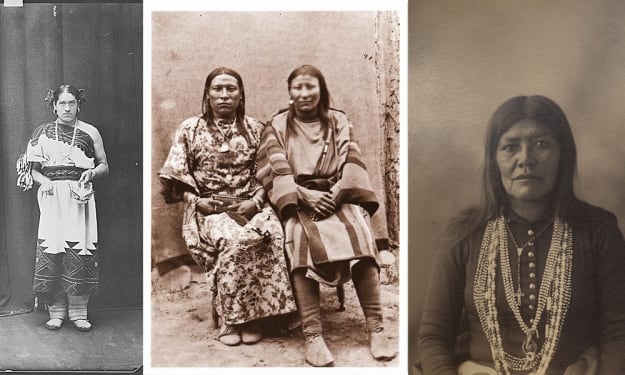'Total War': Great Man History
A Discussion of Sources and Historical Narrative

The Total War video game series by developer Creative Assembly has always had an issue of taking cool, but rare or suspect moments of history and making them gameplay features, whether it be the Pictish stealth catapults in Total War: Rome II, the ninja troops in Total War: Shogun 2, or the flaming pig units all the way back in Rome: Total War (of course, not mentioning the historical issues of the game series being called "Total War" when it has never once portrayed an era where total war existed, the concept having been invented during WWI, significantly later than even the latest entry in the Total War series). However, there has been one thing that the Total War series has always gotten right in their historical games: History is not about individuals. Despite this, something rubbed me the wrong way about their upcoming game, Total War: Three Kingdoms, and the way it portrays history. Three Kingdoms is putting a heavier emphasis on individual people from history than any installment before, bringing to mind the Total War: Warhammer games more so than the previous historical games. The problem is that Warhammer is a franchise that focuses on mythical storytelling, allowing individuals to be more influential than the masses, but this is not how the past happened. The past is a mess of factors that no one person could shift on their own. History is how we talk about or portray the past, and it needs to be as accurate as possible. As far as video games go, of course, accuracy is not a necessity. Getting deep into the details of history can often interfere with gameplay, and there’s no way to program every conceivable historical influence into a game, especially when we don’t know them all. However, the Total War series has existed for 19 years at the time of this writing, and they are only now adding this “great man” history to their game. Not only that, they have added a game mode that turns the great men into legends, allowing them to fight whole units on their own, soak up hundreds of attacks, and turn the tide of a battle by merely winning a duel, an uncommon practice in China during the period of the Three Kingdoms.
If the series has existed without it for so long, why have they decided to go this direction? Creative Assembly’s communications manager, Al Bickham, and lead designer of Total War: Three Kingdoms, Simon Mann, have both said that the two core sources for the history of the game are Romance of the Three Kingdoms and Records of the Three Kingdoms. Records of the Three Kingdoms is a historical account of the Three Kingdoms period written by Chen Shou in the third century. Romance of the Three Kingdoms is a historical fiction novel written by Luo Guanzhong 11 centuries later, based on Records. Yes, that’s right, one of the two major historical sources for the game is a work of fiction written over a thousand years after its main source, which itself was written over twenty years after the final event in its history. And now, almost another thousand years after that novel, Total War is basing their game heavily on both of them. Why is this an issue? Well, for Romance, this should be rather obvious. Romance of the Three Kingdoms is fiction, no matter how much of it is based off of history. Not only that, since it was written over a thousand years after the events it portrays, there’s a lot to be lost in the interim, especially from an era without a rigorous historical academia like we have today. A historical fiction from fifty years ago shouldn’t be trusted as a source for the historical era it was written about, much less one from the 1500s, and this amplifies when the subject is so far removed. As for Records, the main issue is the time it was written in. For much of human history, historians were not careful in their recording of history. Tacitus, Herodotus, and Chen Shou cannot be relied on by themselves to tell history, and since Romance is based so heavily on Records, the vast majority of the historical information at the hands of the Total War developers is from Records, with no dissenting opinions to be had. One of the biggest problems with all of these historians, and the one most relevant to the issue at hand, is that they are prone to the great man view of history. If you live in a hierarchical society based primarily on heritage, it is very hard to stray from the view that some great men (the same great men that are given the right by birth to rule) are the ones who shape history. In fact, this is what gives them the right to rule, because they are “naturally great men.” Even if these historians did not personally believe this, this is the line they would have had to toe in order to survive under the rule of those who did. After all, Records was written after unification, and was commissioned by the Jin dynasty themselves, one of the titular Three Kingdoms. As such, the work refers to Wei rulers as "Emperors," and Shu and Wu rulers as either "Lords" or by name in order to solidify the idea that the Jin dynasty had inherited the Mandate of Heaven, and to maintain their legitimacy. And these are the sources that Total War: Three Kingdoms is based on. With sources like these, there was no way to avoid the undue focus on individuals.
But what’s the issue here? It’s just a video game, after all—why care about this? Well, for one, this is a major change in the historical titles. While Total War: Warhammer had a system focused around individuals to fit the narrative elements of the Warhammer franchise, the historical games have always managed to make individual historical figures seem largely insignificant on their own, even in titles named after those figures, like Napoleon and Attila. Napoleon in his game is just a normal general that has some decent skills, and can’t be completely killed until France is destroyed, but can be put out of commission with an injury for many years at a time after a simple cannon shot. Attila is a little more problematic in that his very birth is an in-game event, and his presence allows the AI-controlled Huns to spawn new armies spontaneously, but he is still a normal general unit with decent skills and can be killed after losing in battle or being assassinated four times. Something similar to Napoleon happens with Julius Caesar and other historical figures in some Rome 2 DLC, and hopefully this is how the system will work in the “Records” game mode of Three Kingdoms, which is significantly improved from “Romance” by keeping the general units as they had been in previous games, at least for the most part. Unfortunately, the game will still have a much larger focus on the individuals in Records mode just because of the Guanxi system which makes the interpersonal relationships of the historical figures key to winning the game. You can even hear the effect that this “great man” perspective in the Record mode gameplay footage where the narrator refers only to the leaders of each faction, all leaders of nations or groups of some kind, instead of their nations or groups, or by the way that the individual generals deliver insults specifically at each other during battle. And indeed, every name is a historic name, at least in the promotion. In previous games, the moment that the game started, historical figures popping up was mere chance, and a low one at that, like in Empire’s America campaign, where the president system means that George Washington will be quickly replaced with some random name, with random stats, actually helping gameplay as it allows an emergent story based on the new president. Then there’s the Romance game mode, which will give these figures superhuman strength and endurance, the abilities to take thousands of arrows and still keep moving and to destroy entire units of soldiers all on their own, without even the general’s bodyguard of previous games. So this is a new addition to the series, and one that is bad history as well, essentially making the historical authenticity of the series worse for its presence. The Total War series played plenty fine without “great man” history, and was more historically accurate without it, but now it’s here, to the detriment of the game’s accuracy and for little to no gameplay benefit. It’s a different play style, sure, but no better or worse than that of the original, except when it comes to the historical accuracy of the game.
The problem with “great man” history is a matter of historical narrative. The past does not have a narrative, but when people write history, they inevitably create narrative. The object of modern historians is to get as close to accurately representing the past as possible despite this. In a “great man” history, the narrative surrounds the certain people who happened to make decisions that change history. However, every “great man” is a product of their environment, and any action they took was influenced by everything preceding them, and the successes or failures of those actions depended on many factors as well. Julius Caesar built up a lot of loyalty in his soldiers during their campaign, but when he crossed the Rubicon, it was up to his soldiers whether they would stay with him, not Julius. No great leader of Japan prevented the nation from being conquered by the Mongols, a typhoon did. The major push to finally get Charles Darwin to publish “On the Origin of Species” was another scientist in the Dutch East Indies mailing him a research study that independently came to the same conclusion vis-a-vis evolution of species through natural selection. The world does not revolve around powerful individuals, no matter how much powerful individuals want you to believe it does.
This is why I find the change to the Total War series to be disappointing, personally. Putting such an extreme focus on individuals gives into this narrative of history, one that is directly worse history. It’s not the end of the world. The game will probably be fine, much like Warhammer was, but I can’t help but find the shift to a “great man” perspective in the Total War series a bit of a let down. It is a change for the worse, historically speaking, in a series based on history, and while people should know that it will not be good history, most will not and will assume the game to be accurate in some manner, especially with something subtle like historical narrative. The moral of the story, of course, is that if you find something in a historically themed game that you think is interesting, you should always go read more to make sure it is correct, and to get a better idea of the rest of the story.
About the Creator
History Roundtable
Owner of a history degree and occasional writer of things






Comments
There are no comments for this story
Be the first to respond and start the conversation.